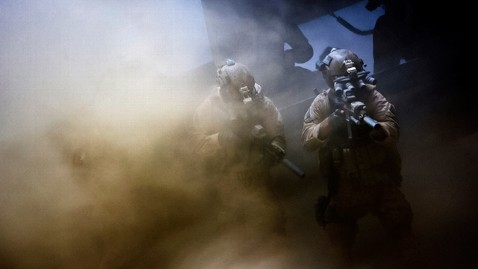MOSCOW/BEIRUT (Reuters) - Russia voiced support on Saturday for international peace envoy Lakhdar Brahimi but insisted Syrian President Bashar al-Assad's exit cannot be a precondition for a deal to end the country's conflict.
Some 60,000 Syrians have been killed during the 21-month-old revolt and world powers are divided over how to stop the escalating bloodshed. Government aircraft bombed outer districts of Damascus on Saturday after being grounded for a week by stormy weather, opposition activists in the capital said.
A Russian Foreign Ministry statement following talks on Friday in Geneva with the United States and Brahimi reiterated calls for an end to violence in Syria, but there was no sign of a breakthrough.
Brahimi said the issue of Assad, who the United States, European powers and Gulf-led Arab states insist must step down to end the civil war, appeared to be a sticking point.
Russia's Foreign Ministry said: "As before, we firmly uphold the thesis that questions about Syria's future must be decided by the Syrians themselves, without interference from outside or the imposition of prepared recipes for development."
Russia has been Assad's most powerful international backer, joining with China to block three Western- and Arab-backed U.N. Security Council resolutions aimed to pressure him or push him from power. Assad can also rely on regional powerhouse Iran.
Russia called for "a political transition process" based on an agreement by foreign powers last June.
Brahimi, who is trying to build on that agreement, has met three times with senior Russian and U.S. diplomats since early December and met Assad in Damascus.
Russia and the United States disagreed over what the June agreement meant for Assad, with Washington saying it sent a clear signal he must go and Russia contending it did not.
Qatar on Saturday made a fresh call for an Arab force to end bloodshed in Syria if Brahimi's efforts fail, according to the Doha-based al Jazeera television.
"It is not a question of intervention in Syria in favor of one party against the other, but rather a force to preserve security," Qatar's Prime Minister and Foreign Minister, Sheikh Hamad bin Jassim al-Thani, said in an al Jazeera broadcast.
CONFLICT INTENSIFIES
Moscow has been reluctant to endorse the "Arab Spring" popular revolts of the last two years, saying they have increased instability in the Middle East and created a risk of radical Islamists seizing power.
Although Russia sells arms to Syria and rents one of its naval bases, the economic benefit of its support for Assad is minimal. Analysts say President Vladimir Putin wants to prevent the United States from using military force or support from the U.N. Security Council to bring down governments it opposes.
However, as rebels gain ground in the war, Russia has given indications it is preparing for Assad's possible exit, while continuing to insist he must not be forced out by foreign powers.
Opposition activists say a military escalation and the hardship of winter have accelerated the death toll.
Rebel forces have acquired more powerful anti-tank and anti-aircraft weapons during attacks on Assad's military bases.
Assad's forces have employed increasing amounts of military hardware including Scud-type ballistic missiles in the past two months. New York-based Human Rights Watch said they had also used incendiary cluster bombs that are banned by most nations.
STALEMATE IN CITIES
The weeklong respite from aerial strikes has been marred by snow and thunderstorms that affected millions displaced by the conflict, which has now reached every region of Syria.
On Saturday, the skies were clear and jets and helicopters fired missiles and dropped bombs on a line of towns to the east of Damascus, where rebels have pushed out Assad's ground forces, the Syrian Observatory for Human Rights said.
The British-based group, which is linked to the opposition, said it had no immediate information on casualties from the strikes on districts including Maleiha and farmland areas.
Rebels control large swathes of rural land around Syria but are stuck in a stalemate with Assad's forces in cities, where the army has reinforced positions.
State TV said government forces had repelled an attack by terrorists - a term it uses for the armed opposition - on Aleppo's international airport, now used as a helicopter base.
Reuters cannot independently confirm reports due to severe reporting restrictions imposed by the Syrian authorities and security constraints.
On Friday, rebels seized control of one of Syria's largest helicopter bases, Taftanaz in Idlib province, their first capture of a military airfield.
Eight-six people were killed on Friday, including 30 civilians, the Syrian Observatory said.
(Writing by Oliver Holmes; Editing by Tom Pfeiffer and Doina Chiacu)










